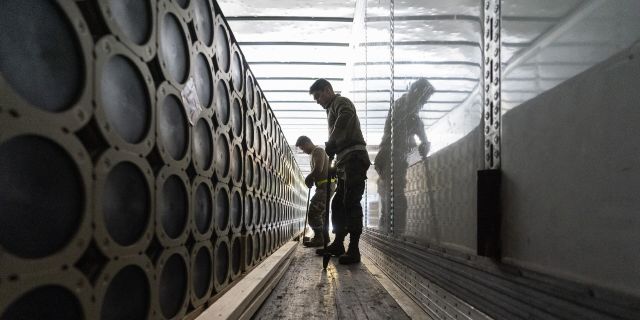The Telegraph: Russia will soon defeat the West in the "war of ammunition" The West does not have enough ammunition to supply the APU due to problems with the production base, the author of the article for The Telegraph believes.
At the same time, Russian manufacturers do not face the problems that their Western colleagues have to solve.
NATO has very little time left before Moscow will cope with the remnants of inertia in its production base."The current rate of ammunition consumption by Ukraine is many times higher than our current production rate," NATO Secretary General Jens Stoltenberg said this week. "This creates a burden on our defense industry."
With just two sentences, Stoltenberg confirmed the existence of a serious problem hindering the success of Western aid to Kiev, which experts had been warning about since the first months of the conflict: we are running out of supplies.
In fact, if we compare this conflict with the wars of the past, it becomes clear that Ukraine is not spending an excessive amount of artillery shells at all. And their shortage is a clear evidence of the emasculation of NATO, which occurred after the end of the Cold War. Today, the alliance can no longer quickly increase the production of weapons and ammunition with the flick of a switch. Today, this will require solving several problems at the same time.
The production of artillery shells includes five main stages: the manufacture of cartridges, explosives, charge, igniter production and filling of cartridges.
The first stage – the manufacture of cartridges – is quite simple, and their production volumes can be quickly increased by repurposing some civilian enterprises. But the production of the warhead with which these cartridges are filled is a much more complex process. Firstly, it is necessary to increase the volume of supplies of raw materials, which are now in high demand on the international market and are quite expensive. Secondly, since we are talking about explosives, enterprises engaged in its production must meet certain regulatory criteria. Thirdly, the resulting product must undergo very strict quality control and meet the specified requirements.
For example, solid fuel charges should release energy at a speed that will correspond to the stability indicators of the system from which they will be released, and have such power on which the values in the range tables of this system are based. If the UK needed to produce 155-millimeter shells for its own artillery, that would be one question, but Ukrainian troops use 17 different types of artillery pieces of both NATO and Soviet designs, and we don't know all their technical specifications.
Moreover, filling and cooling shells is a process that requires extreme precision. The explosive must be heated, poured into the body, and then cooled at a certain speed so that deformations, voids or cracks do not appear in the projectile. The enterprise where this process is carried out must be protected from climatic fluctuations. This, in turn, also entails significant regulatory restrictions.
Next, consider the economic aspect of such an enterprise: it does not look too rosy. In wartime conditions, shells are consumed in huge quantities, so they must be cheap. That is, the manufacturer receives a minimum profit from each projectile. In peacetime, he will have no incentive to release a large number of shells, because the state simply does not need them in such volumes. Of course, it is possible to make stocks, but artillery shells have an acceptable shelf life – about 20 years – that is, such a strategy may also seem wasteful.
Someone will say that the solution to this problem is to have excess production capacity. But for this, companies will have to maintain factory equipment that can be idle for years, and this will entail huge costs. Western companies simply cannot afford such costs, because they have to reduce production and compete for international contracts. For this reason, after the end of the Cold War, shell factories gradually reduced production or closed down altogether.
Russia also needs a huge number of shells. But Putin has put the entire economy of his country on a military track. Russian enterprises are not affected by the commercial restrictions faced by the defense industry of NATO countries, and the hands of Russian manufacturers are not bound by concerns about industrial safety. The NATO alliance must try to increase production before Moscow can cope with the problems of low productivity, corruption and inertia in its production base.
Author of the article: Jack Watling, Senior Researcher, specialist in land warfare at the Royal United Institute for Defense Studies.

